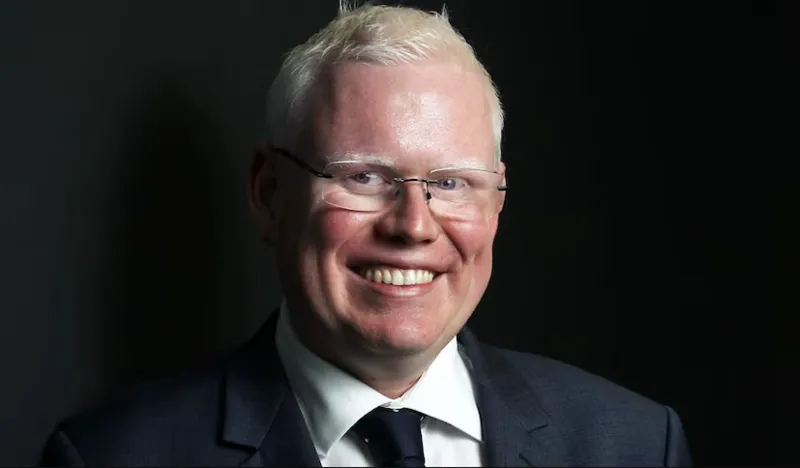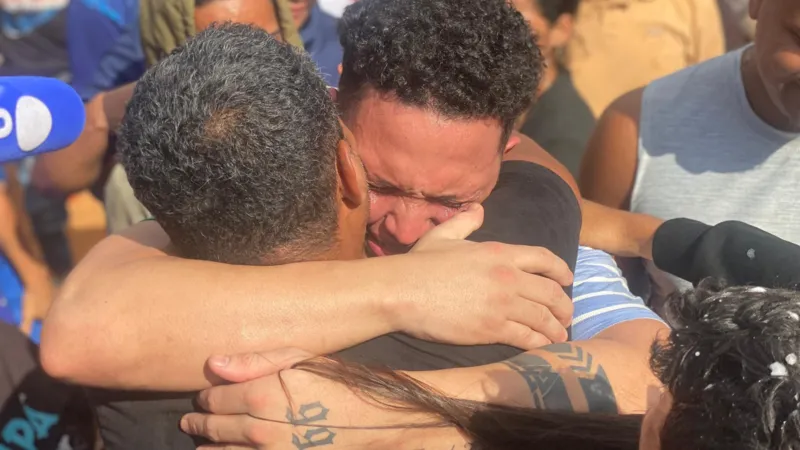Will Trump invade Greenland? What's truth about Canada claim? Will he ditch Ukraine? | Your questions answered
Our US election blog is returning for Donald Trump's inauguration - starting with a live Q&A with our US correspondents stateside which took place on Friday afternoon.
Is the 'Gulf of America' a real possibility?
This one refers to an earlier news conference held by Donald Trump at the start of this month.
The president-elect said he would move to try to rename the Gulf of Mexico to the "Gulf of America" - a name he said has a "beautiful ring to it".
Simply, "there is no formal international agreement relating to the naming of international maritime area", correspondent David Blevins says.
"You can play to your own audience, but whether anyone else would listen is another thing," he adds.
Will Trump and Starmer get on?
US correspondent Mark Stone says politicians are pragmatists so they will "make sure they get on".
The special relationship between the two nations is "deep" but its custodian is the UK ambassador to the US, who will be Lord Mandelson - and he has "one heck of a job", says Stone.
"It is a tricky relationship: politically, Trump and Starmer are not aligned at all, but they need to get on."
It is made all the more tricky by the fact that Elon Musk "appears to have it in for Starmer", Stone adds.
Starmer has been very careful so far to choose his words on the president-elect, he says.
Correspondent David Blevins says Lord Mandelson does have experience walking political tightropes.
The politician came "back from the political wilderness" to become Northern Ireland secretary after the Good Friday Agreement.
"He has actually achieved quite a lot in that kind of polarised environment and he will have to draw on that when he arrives in the US," says Blevins.
Lord Mandelson has the "experience and ability" for this kind of environment, he says.
Will we learn anything about Trump from his inauguration?
We will learn the extent to which we need to take his campaign promises at face value, says our correspondent David Blevins.
On the first day of his first term, he signed one executive order - but, this time, we may lose count of the number of orders he could make, he adds.
These could span new immigration laws and even pardoning some of those convicted for their part in the January 6 riots.
He may even look to halt a ban on TikTok for 90 days, an interesting option, given the firm's chief executive has been invited to the inauguration, Blevins adds.
US correspondent Mark Stone recalls a conversation with a Trump advisor, who told him "watch this space" - he will have a "pile" of orders to sign on day one.
Executive orders can be overturned by Congress, but Stone points out his Republican Party has a majority there, so it may be unlikely for any to be reversed.
What will Trump's stance on Ukraine be?
"Trump always said that he would solve the Ukraine conflict very quickly - the question is how do you do it?" US correspondent Mark Stone asks in response to this question.
The key is balancing the needs of the Ukrainian people with what Russia will realistically agree to, he says.
He cites JD Vance's comments about using the current battlefield lines as ceasefire lines as the most likely Trumpian plan for peace.
Russia occupies about a fifth of Ukrainian territory at present so the current battle lines would be frozen and become a demilitarised zone.
In the short term, that would allow Trump to say he'd stopped the war.
"Short-term gain for Trump - that's what he's all about."
But that sends a dangerous message to Vladimir Putin.
"He may well think to push west long after Trump has gone," he says.
Is America in danger of becoming dictatorship?
Correspondent David Blevins says Joe Biden certainly seems to think that it is.
In his farewell address, the president didn't spend much time reminiscing, instead warning of an oligarchy of wealth, power and influence, says Blevins.
Biden spoke of social media giants giving up on fact checking and said there was "very real concern" about the threat to democracy.
US correspondent Mark Stone adds the main thrust of Biden's speech was about oligarchy, rather than dictatorship.
Biden thought it was "distinctly unhealthy", says Stone, that the likes of Elon Musk - and 12 other billionaires - were serving in the Trump administration.
Musk has been viewed by Biden as an "agent of unchecked power", says Stone.
Will the Trump-Musk relationship last?
It depends on how much each has to gain and lose, says our correspondent David Blevins.
Elon Musk has been appointed head of a government department that to some extent has a say on his own business empire - and having the world's richest man on your side could help Donald Trump.
But familiarity can breed contempt - and Trump enjoys being front and centre, so there could be trouble if the president-elect feels like he's being upstaged.
US correspondent Mark Stone says they've been on an extraordinary journey, from not getting on very well to Musk now being considered a co-president by some.
But it's a symbiotic relationship at the moment, he adds, with Musk helping to bankroll some of Trump's campaign.
If it falls apart, it will be spectacular, he says.
Is NATO under threat?
US correspondent Mark Stone says he doesn't think, despite claims from Donald Trump that he wants to see defence spending massively hiked by NATO countries, that the incoming president genuinely expects anyone to reach the outlandish target of 5% of GDP.
"Not even America spends that," he notes.
NATO asks its members to spend around 2% of their GDP (as a minimum) on defence.
"What he's doing is going in with a high bid" in the hope that countries could meet him in the middle, Stone says.
But we can look back at his past term, when he insisted on other countries in the alliance pay their "fair share" - with some nations dipping below the 2% target.
"You can credit Donald Trump - in part - with countries spending more on defence," Stone says.
That being said, the alliance has done a lot of work to "Trump-proof" itself - particularly when it comes to being able to sustainably fund Ukraine even in the eventuality that the US pulls all support for Kyiv.
"Is NATO under threat? Possibly," he says, "but is NATO under pressure? Definitely."
Will Trump invade Greenland, the Panama Canal or Canada?
Correspondent David Blevins says his first response is "never say never".
Trump has become "emboldened" by victories in Congress as well as the presidency, he adds.
"We have this disruptor surrounded by disruptors."
US correspondent Mark Stone explains Trump said he wouldn't rule out force to take control of Greenland and the Panama Canal, while saying Canada should become the 51st state of America.
Trump's approach is to go into a negotiation with something "mad and crazy" to begin with, says Stone.
Though he thinks "he's not going to do it", ultimately.
"But I do think we could see more American influence in Greenland in the years ahead."
-SKY NEWS






